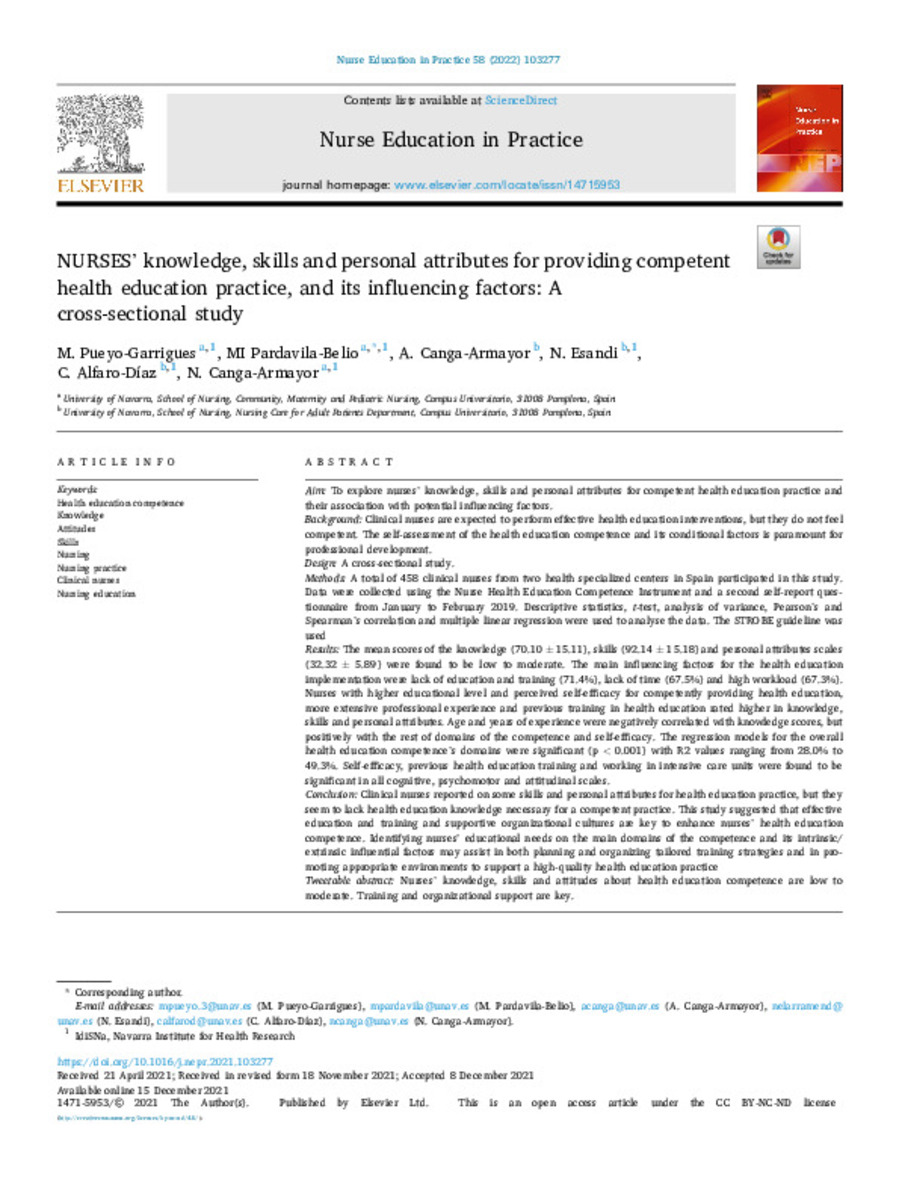NURSES’ knowledge, skills and personal attributes for providing competent health education practice, and its influencing factors: A cross-sectional study
Palabras clave :
Health education competence
Knowledge
Attitudes
Skills
Nursing
Nursing practice
Clinical nurses
Nursing education
Fecha de publicación :
2022
Nota:
This is an open access article under the CC BY-NC-ND license
Cita:
Pueyo-Garrigues, M. (María); Pardavila-Belio, M. I. (Miren Idoia); Canga-Armayor, A. D. (Ana Dolores); et al. "NURSES’ knowledge, skills and personal attributes for providing competent health education practice, and its influencing factors: A cross-sectional study". Nurse Education in Practice. (58), 2022, 103277
Aparece en las colecciones:
Estadísticas e impacto
0 citas en

0 citas en

Los ítems de Dadun están protegidos por copyright, con todos los derechos reservados, a menos que se indique lo contrario.








